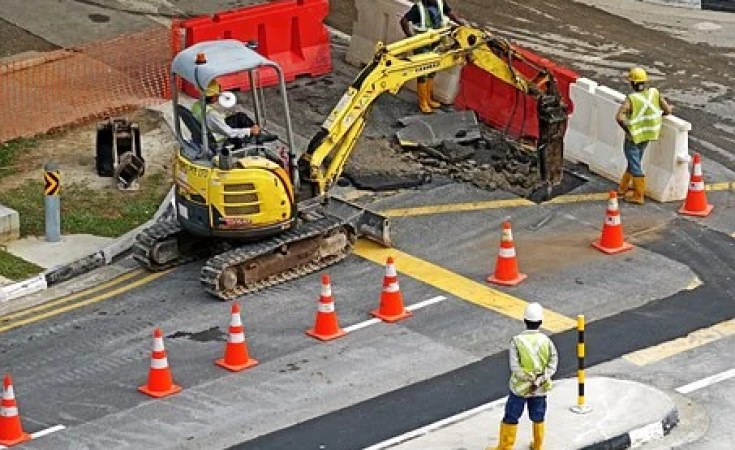Africa's current roads infrastructure meets only 17% of the continent's transport needs. However, according to Olufunso Somorin, the African Development Bank's East Africa Regional Principal Officer for Climate Change and Green Growth, the low figure has some upside. He says that the gap presents an opportunity for African countries to build climate-resilient roads as the impacts of climate change become more and more pronounced.
Dr. Somorin was among several experts representing government, development finance institutions, the private sector, and academia who took part in a virtual meeting held 6-8 December 2021 to discuss ways to make African roads infrastructure more resilient to climate change impacts.
The Uganda National Roads Authority and the World Road Association hosted the webinar, themed, Climate Change Adaptation and Resilience of Road Networks (in low and middle-income countries).
"Africa is at a 'positive disadvantage' as only 17% of the road infrastructures required on the continent have been built. For the remaining 83% roads that are yet to be built, an opportunity lies for ensuring that they are resilient to both current and projected climate impact," Somorin said.
Discussions at the three-day event centered on challenges, opportunities and innovations for building infrastructure to withstand rising extreme weather events on the continent.
In his opening remarks, Mr. Claude Van Rooten, the President of the World Road Association, said, "Many countries are fortunately building back better after the Covid-19 pandemic, with emphasis on inclusive and resilient growth. Roads are enablers to meeting this objective and therefore, they should be built in ways that are both resilient and contribute to reduced carbon emissions through decongestion of vehicles," he said.
Dr. Mark Rubarenzya, the Head of Research and Development at the Uganda National Roads Authority, posited that resilience must be factored in at the planning stage. "Action needs to begin right at planning to ensure that adaptation and resilience measures are properly integrated into road design and budgeted for," he added.
Mr. Vivian Depoues of the Institute for Climate Economics added: "Countries and organizations ought to include surprises such as extreme and unforeseen weather events, which could cause immense damage. Appropriate planning tools should be developed to facilitate such planning."
Participants broadly agreed that the building of resilient roads required the participation of different stakeholders, including government ministries, development partners, civil society, private sector and communities.
Mr. Phil Paige-Green, an Independent Expert from South Africa, called for the engagement of communities from the planning stage of projects. "They must be informed about climate risks to roads infrastructure and how they can contribute to the critical resilience interventions required," he noted.
The African Development Bank is a key investor in road infrastructure development across the continent as part of its 'Integrate Africa' pillar objective. Over the last 10 years, the Bank has invested more than $9 billion in roads, financing more than 16,000 km of road and facilitating the movement of more than 100 million people. Climate mitigation and adaptation interventions are firmly integrated into the project designs.


